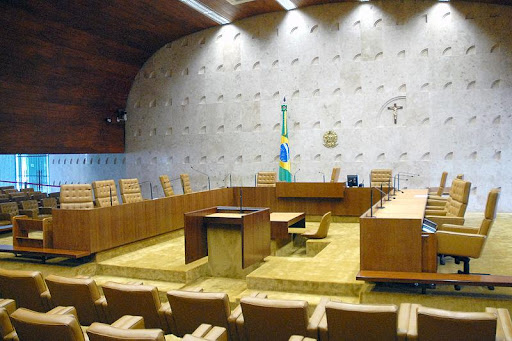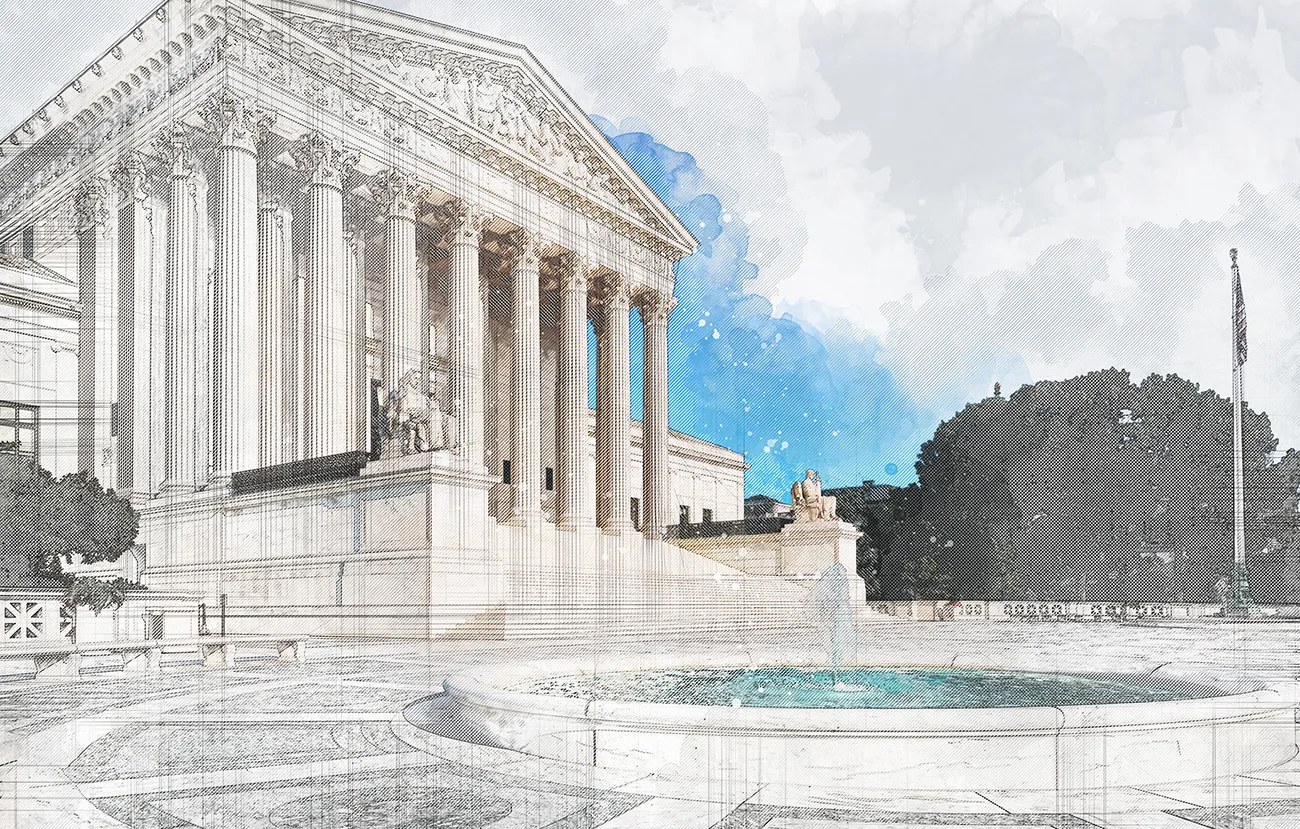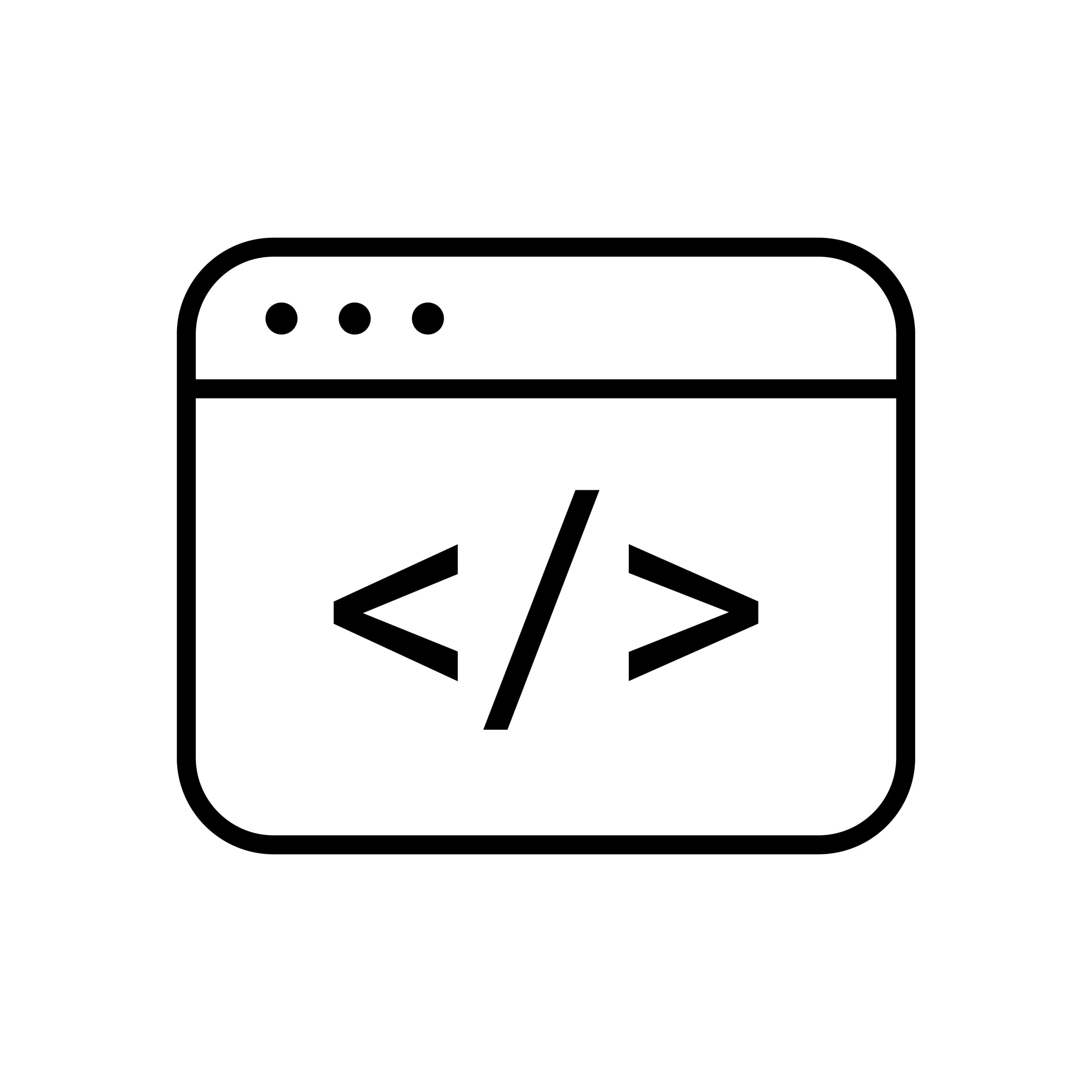Brazilian Supreme Court to Host Public Hearing Debating Content Regulation and The ‘Marco Civil’

UPDATE:
After this week’s proceedings in the matter of the constitutionality of Article 19 of Marco Civil, out of the final tally of 47 speakers, only 8 outright defended its unconstitutionality. Some arguments included that Article 19 elevated freedom of expression to a position of absolute right and that would cause a constitutional unbalance, and that the need for a judicial review would make the reparation of potential damages too slow for the fast pace of the internet. Another 17 speakers gave neutral statements. They tended to argue Article 19 should be declared constitutional, but that its interpretation should follow the lines of the Brazilian Constitution and prioritize other pillars such as human rights, privacy and the protection of children. Finally, the remaining 22 speakers, which included industry representatives and civil society groups, claimed Article 19 is in conformity with the Brazilian legal system and warned that declaring it unconstitutional could have unintended consequences such as a potential chilling effect to free speech online and the over-judicialization of moderation practices by platforms. For a complete score of each speaker’s position, this link is recommended (in Portuguese).
Brazilian Supreme Court Justice Luís Roberto Barroso recently said at a UNESCO conference on the ongoing “Internet for Trust” workstream, which aims to develop guidelines for regulating digital platforms, that “the internet we now know needs regulations” and that “platform liability for third party content must be reasonable and proportional”. The court, which goes by the acronym “STF” in Brazil, will have the chance to start more clearly defining the contours of these laws next week.
On March 28th and 29th, STF will host a public hearing to debate the rules of the Civil Framework of the Internet (‘Marco Civil’), the Brazilian law establishing the principles, guarantees, rights and obligations for the use of the Internet in the country. It addresses issues such as net neutrality, freedom of speech and, most importantly, online content removal. The two topics being debated are the liability of online platforms or companies (‘websites’) for content shared by their users, and the obligation of these websites to remove potentially harmful content after a simple notice (with no court order being required). These refer to two cases currently in the court’s docket: RE-1037396 and RE-1057258.
A total of 91 entities applied to be heard in next week’s hearing. Of those, 45 were chosen and will have 10 minutes each to present their oral statements with no written brief being required. The full list can be found here and has some notable participants such as: Google, Facebook, Twitter and Bytedance Brazil; Brazilian government departments such as the department of Social Communication of the Presidency (SECOM), the Department of Human Rights and Citizenship (MDHC) the Department of Communications (MC) and the Department of Women; Wikimedia Foundation and the Brazilian Association of Internet and Telecommunications Providers (ABRINT); Brazilian agencies such as The National Telecommunications Agency (ANATEL) and the National Authority for Personal Data Protection (ANPD); journalism associations like National Association of Journals (ANJ); civil society organizations like InternetLab and Artigo 19; and the President’s Party, the Workers Party (PT).
It is uncommon for STF to hold these types of hearings, where the public is invited to offer its views on the interpretation of a law. This one in particular comes at a time where the debate on internet regulation is at the forefront of public policy discussions not only in Brazil but in the entire world. Therefore, the decisions of the cases being debated next week have the effective potential to shape how Brazil will tackle this thorny issue. To that end it is important to know: what are these cases about? And second, how should the court resolve the two topics being debated? An attempt to answer both these questions comes below.
What are the cases about?
RE-1057258 started out as a civil suit filed by a schoolteacher named Aliandra against Google. The teacher claims to have suffered moral damages due to the creation of a community called “I Hate Aliandra” in the Google owned social network Orkut. This suit was filed in 2011, before the Marco Civil came into force in 2014, and, therefore, before there was any guidance on what websites should do in the case of defamatory content online. Being aware of the great public interest the extraordinary appeal (RE in the acronym in Portuguese) in this case brought for the court to analyze, STF attributed to it the “general repercussion” Topic 533 titled “Duty of the website hosting company to monitor the published content and to remove it from the Internet when considered offensive, without the intervention of the Judiciary”, and that represents one of the topics STF seeks comments on next week.
RE-1037396, on the other hand, originated a couple of months after the Marco Civil came into force in 2014 in a lawsuit seeking to delete a fake profile created on Facebook using another plaintiff’s images and name and seeking a judgment against Meta for moral damages. In the first instance, the motion by the plaintiff to have the profile removed was granted, but not the one on moral damages, due to a provision in Article 19 of the Marco Civil which states a website only has to remove content when it is considered infringing by a court (exceptions being copyrighted and CSAM material). The appellate court reversed the decision and granted moral damages, deeming Article 19 to be unconstitutional for violating Article 5, item XXXII, of the Brazilian Constitution, according to which the State has the duty to promote consumer protection in accordance with the law. Meta’s extraordinary appeal in this case to declare Article 19 valid generated the second “general repercussion” topic being debated (Topic 987), that discusses “the constitutionality of art. 19 of Law n. 12.965/2014 (Marco Civil da Internet), which determines the need for a prior and specific court order mandating content deletion to establish civil liability of internet providers, websites and social network application managers for damages resulting from unlawful acts committed by third parties”.
How should the court resolve the two topics being debated?
Both “general repercussion” topics deal directly with the manner websites handle the content they host, weighing on the question of who has the authority to compel the removal of potentially harmful content: the state, the companies, or the affected parties. Before the Marco Civil, Brazil had no specific legislation on the topic, having to frequently rely on consumer protection laws to tackle content moderation disputes. Such absence is what ultimately led to the discussion of Topic 533: who has the right to decide whether content is offensive and compel its removal?
Brazil sought to remedy this gap through Marco Civil, which contained among other provisions Article 19. It was a deliberate policy decision by the Brazilian Congress to implement it the way it was written:
Art. 19. In order to ensure freedom of expression and prevent censorship, the provider of internet applications can only be subject to civil liability for damages resulting from content generated by third parties if, after an specific court order, it does not take any steps to, within the framework of their service and within the time stated in the order, make unavailable the content that was identified as being unlawful, unless otherwise provided by law.
§ 1o The referred court order must include, under penalty of being null, clear identification of the specific content identified as infringing, allowing the unquestionable location of the material.
§ 2o The implementation of the provisions of this article for infringement of copyright or related rights is subject to a specific legal provision, which must respect freedom of speech and other guarantees provided for in art. 5o of the Federal Constitution. (…)
Brazil chose to shift the burden to the judiciary. Through a legal process, it was thought, the fairest result for all parties could be reached. This very same legal process is what led to the discussion of Topic 987, where the constitutionality of Article 19 was put in question. An argument was made that it went against consumer protection mechanisms and, therefore, would be contrary to the provision of the Brazilian Constitution that gives the State the duty to promote consumer protection in accordance with the law.
The irony is that Article 19 is part of a federal law intended to give this very duty to protect consumers to the state’s judicial system. Declaring it unconstitutional would undo years of multisectoral work that led to one of the first laws in the world (back in 2014) that gave its citizens a number of rights when accessing content online such as personal data protection, freedom of expression and the very right to have access to the internet itself.
The court ultimately seeks arguments on two issues: (i) whether and under what circumstances internet providers that host third party content can be held liable for such offensive content; and (ii) whether these providers may be required to remove, after notice (but absent a judicial finding), content that violates laws related to personality rights, incitement of hatred and the spread false information. In other words, first what should the liability regime for websites look like, and second who chooses which content violates the law.
These are important matters that are difficult to answer, and the UNESCO workstream and the great number of names electing to take part in next week’s public hearing show this is a global concern with little agreement between the different parties. Therefore, it is important not to outright discard the system already in place which places the judicial system in charge.
If Article 19 is declared unconstitutional, Brazil would revert to the very same system of uncertainty that Topic 533 is trying to solve. Essentially, this would mean giving up the judicial power to decide the legality of any content on the Internet, which could lead to abuses by platforms or individuals using extrajudicial notifications, in a phenomenon known as the heckler’s veto. It is not far-fetched to assume how such a system would be abused, as past examples from other countries show “57%—of [DMCA takedown] notices sent to Google to demand removal of links in the index were sent by businesses targeting apparent competitors”. Empirical evidence studies show evidence of over-removal, even in sensitive cases to conceal criminal misdeeds. For instance, in Europe Google has received almost 300,000 Right to Be Forgotten take-down requests, roughly 60% of them being granted. There are even businesses that promise being able to remake anyone’s image online by using this tactic. However, the extrajudicial notification system is better used in exceptional cases, such as when combating the serious issue of non-consensual dissemination of intimate images, which is already covered in Article 21 of the Marco Civil.
It is important to continue discussing and improving the Article 19 model, but any changes should be made through a democratic process similar to that used to establish it in the first place. This process should involve the various actors that compose the system, online platforms or companies, the government, society, and not be made in a single ruling by a single body.
Additionally, a big reform package for internet regulation is being discussed in the Brazilian Congress in the form of the ‘Fake News Act’ (PL 2630), and the current government is promising to share its take on the topic as early as this week. Based on early predictions and considering there are bills being discussed on the topic, some of the speakers of next week’s public hearing may urge STF to let the democratic process run its course. Hopefully the court will hear their pleas.
UPDATE:
Após os dois dias de audiência desta semana sobre a constitucionalidade do artigo 19 do Marco Civil, da contagem final de 47 entidades apenas 8 defenderam que ele era inconstitucional. Alguns argumentos deste grupo incluíam que o artigo 19 elegeu a liberdade de expressão como um direito absoluto e que isso causaria o desequilíbrio constitucional, e que a necessidade de uma revisão judicial tornaria eventuais indenizações muito lentas para o ritmo acelerado da internet. Outros 17 participantes deram declarações neutras. De modo geral, eles argumentaram que o artigo 19 deveria ser declarado constitucional, mas que sua interpretação deveria seguir as linhas da Constituição e priorizar outros pilares como os direitos humanos, a privacidade e a proteção das crianças. Finalmente, as 22 entidades restantes, que incluíam representantes da indústria e grupos da sociedade civil, alegaram que o artigo 19 está em conformidade com o sistema legal brasileiro e advertiram que declará-lo inconstitucional poderia ter conseqüências não intencionais, tais como um potencial efeito resfriador para a liberdade de expressão on-line e a possibilidade de hiper-judicialização das práticas de moderação das plataformas. Para um placar completo com os posicionamentos de cada entidade participante, recomenda-se este link.
Luís Roberto Barroso, ministro do Supremo Tribunal Federal, afirmou recentemente na conferência da UNESCO “Internet for Trust“, que visa desenvolver diretrizes para a regulamentação de plataformas digitais, que “a Internet que agora conhecemos precisa de regulamentação” e que “a responsabilidade de plataformas pelo conteúdo de terceiros deve ser razoável e proporcional”. O Tribunal terá a chance de começar a definir mais claramente os contornos desse tipo de legislação na próxima semana.
Nos dias 28 e 29 de março, o STF realizará uma audiência pública para debater as regras do Marco Civil da Internet, lei brasileira que estabelece os princípios, garantias, direitos e obrigações para o uso da Internet no Brasil. Ela trata de questões como neutralidade da rede, liberdade de expressão e, de maior importância para este artigo, a remoção de conteúdo online. Os dois tópicos em debate na audiência pública são o regime de responsabilidade de provedores de aplicativos por conteúdo gerado pelos seus usuários, e a possibilidade de remoção de conteúdos potencialmente infringentes a partir de mera notificação extrajudicial. Estes se referem a dois casos atualmente aguardando decisão do Tribunal: RE-1037396 e RE-1057258.
Um total de 91 entidades se candidataram para serem ouvidas na audiência da próxima semana. Dessas, 45 foram escolhidas e terão 10 minutos cada uma para a apresentação de seus argumentos, sem a necessidade de submissão escrita. A lista completa, que pode ser encontrada aqui, conta com alguns participantes notáveis, como: Google, Facebook, Twitter e Bytedance Brasil; órgãos do governo brasileiro, como a SECOM, o Ministério dos Direitos Humanos e Cidadania, o Ministério das Comunicações e o Ministério das Mulheres; a Wikimedia Foundation e a Associação Brasileira de Provedores de Internet e Telecomunicações (ABRINT); agências brasileiras como a Agência Nacional de Telecomunicações (ANATEL) e a Autoridade Nacional de Proteção de Dados Pessoais (ANPD); associações de jornalismo como a Associação Nacional de Jornais (ANJ); organizações da sociedade civil como o InternetLab e Artigo 19; e o Partido dos Trabalhadores (PT).
É incomum para o STF realizar este tipo de audiência e esta em particular vem em um momento em que o debate sobre a regulamentação da Internet está na vanguarda das discussões de políticas públicas não apenas no Brasil, mas em todo o mundo. Portanto, as eventuais decisões dos casos sendo debatidos na próxima semana pelo STF têm o efetivo potencial de moldar a forma como o Brasil enfrentará esta questão. Para isso, é importante saber: sobre o que são os casos? E segundo, como o STF deve resolver os dois temas sendo debatidos? Abaixo, uma tentativa de se responder a estas duas perguntas.
Sobre o que são os casos?
O RE-1057258 originou de uma ação movida por uma professora chamada Aliandra contra o Google. A professora alega ter sofrido danos morais devido à criação de uma comunidade chamada “Eu Odeio a Aliandra” na rede social Orkut, de propriedade do Google. Esta ação foi movida em 2011, antes da entrada em vigor do Marco Civil em 2014, e, portanto, antes que houvesse quaisquer orientações sobre o que os sites deveriam fazer no caso de se depararem com conteúdo difamatório em suas plataformas. Ciente do grande interesse público que o Recurso Extraordinário neste caso trouxe para o Tribunal analisar, o STF atribuiu a ele o tema de repercussão geral 533 intitulado “Dever de empresa hospedeira de sítio na internet fiscalizar o conteúdo publicado e de retirá-lo do ar quando considerado ofensivo, sem intervenção do Judiciário”, e que representa um dos tópicos que o STF busca subsídios na próxima semana.
O RE-1037396, por outro lado, teve origem alguns meses após a entrada em vigor do Marco Civil, em 2014, em uma ação judicial buscando eliminar um perfil falso criado no Facebook e uma condenação contra a empresa Meta por danos morais. Em primeira instância, foi concedido o pedido da parte autora para a remoção do perfil, mas não os danos morais, devido a uma disposição no Artigo 19 do Marco Civil que afirma que um site só tem o dever de remover um determinado conteúdo quando este for considerado infringente por um tribunal (exceções são direitos autorais e material contendo cenas de nudez). Em 2o. grau, a decisão foi revertida e se concedeu danos morais, com o Tribunal de Justiça de São Paulo considerando o Artigo 19 inconstitucional por violação ao Artigo 5, inciso XXXII, da Constituição Federal, segundo o qual o Estado tem o dever de promover a proteção ao consumidor de acordo com a lei. O Recurso Extraordinário da Meta neste caso para declarar a constitucionalidade do Artigo 19 gerou o segundo tema de repercussão geral em debate (Tema 987), que discute “a constitucionalidade do art. 19 da Lei n. 12.965/2014 (Marco Civil da Internet) que determina a necessidade de prévia e específica ordem judicial de exclusão de conteúdo para a responsabilização civil de provedor de internet, websites e gestores de aplicativos de redes sociais por danos decorrentes de atos ilícitos praticados por terceiros”.
Como o STF deve resolver os dois temas sendo debatidos?
Ambos os tópicos de repercussão geral tratam diretamente da maneira como as plataformas lidam com o conteúdo que hospedam, debatendo a questão de quem tem a autoridade sobre a remoção de conteúdo potencialmente infringente: o Estado, as empresas ou as partes afetadas. Antes do Marco Civil, o Brasil não tinha legislação específica sobre o tema, tendo de se valer frequentemente do Código de Defesa do Consumidor para lidar com disputas de moderação de conteúdo. Tal ausência foi o que levou à discussão do tema de repercussão geral 533: quem tem o direito de decidir se o conteúdo é infringente e obrigar a sua remoção?
O Brasil procurou remediar esta lacuna através do Marco Civil, que contém, entre outras disposições, o Artigo 19. Foi uma decisão política deliberada do Congresso brasileiro implementá-lo da forma como foi escrito:
Art. 19. Com o intuito de assegurar a liberdade de expressão e impedir a censura, o provedor de aplicações de internet somente poderá ser responsabilizado civilmente por danos decorrentes de conteúdo gerado por terceiros se, após ordem judicial específica, não tomar as providências para, no âmbito e nos limites técnicos do seu serviço e dentro do prazo assinalado, tornar indisponível o conteúdo apontado como infringente, ressalvadas as disposições legais em contrário.
§ 1º A ordem judicial de que trata o caput deverá conter, sob pena de nulidade, identificação clara e específica do conteúdo apontado como infringente, que permita a localização inequívoca do material.
§ 2º A aplicação do disposto neste artigo para infrações a direitos de autor ou a direitos conexos depende de previsão legal específica, que deverá respeitar a liberdade de expressão e demais garantias previstas no art. 5º da Constituição Federal. (…)
O Brasil optou por transferir a decisão para o Judiciário. Consolidou-se que através de um processo legal o resultado mais justo para todas as partes poderia ser alcançado. Esta mesma determinação foi o que levou à discussão do tema de repercussão geral 987, onde a constitucionalidade do Artigo 19 foi posta em questão. Argumentou-se que ele ia contra os mecanismos de proteção ao consumidor e, portanto, seria contrário à disposição da Constituição que dá ao Estado o dever de promover a proteção ao consumidor de acordo com a lei.
A ironia é que o Artigo 19 é parte de uma lei federal destinada a dar ao sistema judicial brasileiro justamente este dever de proteger os consumidores. Declará-lo inconstitucional anularia anos de trabalho multisetorial que levaram a uma das primeiras leis do mundo (em 2014) que deu a seus cidadãos uma série de direitos ao acessar conteúdos on-line, tais como proteção de dados pessoais, liberdade de expressão e o próprio direito de se ter acesso à Internet.
O STF fundamentalmente busca argumentos sobre duas questões: i) o regime de responsabilidade de provedores de aplicativos ou de ferramentas de internet por conteúdo gerado pelos usuários, e ii) a possibilidade de remoção de conteúdos que possam ofender direitos de personalidade, incitar o ódio ou difundir notícias fraudulentas a partir de notificação extrajudicial. Em outras palavras, primeiro como deve ser o regime de responsabilidade para as plataformas e, segundo, quem decide qual conteúdo viola a lei.
Estes são assuntos importantes e que são difíceis de se responder. O evento da UNESCO citado acima e o grande número de nomes escolhidos para participar da audiência pública da próxima semana mostram que esta é uma preocupação global com pouca concordância entre as diferentes partes. Portanto, é importante não se descartar o sistema do Artigo 19 do Marco Civil já em vigor que coloca as rédeas no sistema judiciário e no devido processo legal.
Se o Artigo 19 for declarado inconstitucional, o Brasil voltaria ao mesmo sistema de incerteza que o Tema 533 está tentando resolver. Essencialmente, isto significaria abrir mão do poder que o judiciário tem de decidir sobre a legalidade de qualquer conteúdo presente na Internet, o que poderia levar a abusos por parte de plataformas ou indivíduos usando notificações extrajudiciais. Não é exagero imaginar como tal sistema poderia ser abusado, pois exemplos anteriores de outras legislações mostram que “57% dos avisos [referentes a obras que infringiam o direito de autor] enviados ao Google para exigir a remoção de links foram remetidos por empresas que visavam concorrentes próximos”. Estudos empíricos mostram evidências de remoção excessiva, mesmo em casos para tentar esconder a existência de atividades criminais. Por exemplo, na Europa o Google recebeu quase 300.000 pedidos de retirada de conteúdo fruto do direito ao esquecimento, sendo que cerca de 60% deles foram concedidos. Há até mesmo empresas que prometem serem capazes de melhorar a imagem de qualquer pessoa na Internet utilizando esta tática. Entretanto, o sistema de notificação extrajudicial tem uma aplicação melhor em casos excepcionais, como no combate ao sério problema da disseminação não-consensual de imagens íntimas, que já está abarcado pelo artigo 21 do Marco Civil.
É importante continuar a discussão e melhorar a redação do Artigo 19 e o modelo de regulação previsto no Marco Civil, mas quaisquer mudanças devem ser feitas através de um processo democrático semelhante ao utilizado para estabelecê-lo em primeiro lugar. Este processo deve envolver os vários atores da sociedade, plataformas, empresas, o governo, a população, e não ser feito por meio de uma única decisão de um único órgão colegiado.
Além disso, um grande pacote de reformas para a regulamentação da internet está sendo discutido no Congresso brasileiro sob a forma da ‘Lei das Fake News’ (PL 2630), e o governo atual está prometendo compartilhar suas contribuições sobre o tema ainda nesta semana. Com base nas previsões iniciais e considerando que há projetos de lei sendo discutidos sobre a regulação das plataformas, alguns dos participantes da audiência pública da próxima semana devem instar o STF a deixar o processo democrático seguir seu curso. Essa seria a opção mais prudente para esse tribunal seguir.








